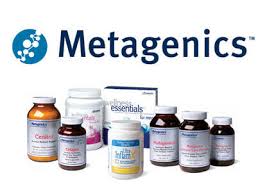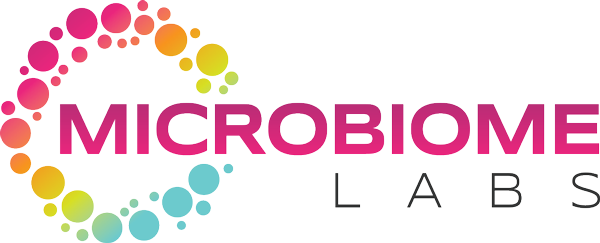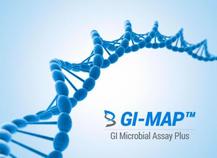|
Getting enough protein after surgery is absolutely necessary and protein shakes are almost always needed.
Here's an overview of what you need to know about protein supplements. Protein supplements come in several forms:
Dietary instruction will vary, but most patients need protein supplements AT LEAST starting 2 weeks before surgery and up to 6 weeks after surgery. Many patients start drinking protein shakes well before this and use shakes longer than 6 weeks post op. Be sure to follow your heath care provider's instruction because excess protein supplements may add excess calories or get in the way of eating other foods you need. Choosing A Protein Supplement A Serving is One Scoop of protein powder or 8 oz of protein shake. Each serving should be:
Ingredients It is important to consume complete protein isolates: Whey, Soy, Egg, Milk, Casein. List of Recommended Protein Powders
List of Ready-To-Drink Protein Shakes
5 Comments
There are 9 main behavior changes that will help you be successful with Bariatric Surgery.
These changes should be started before surgery and will continue life-long. 1. Meal Timing & Frequency
2. Meal Size & How To Eat
3. Drink Enough Water / Fluids
4. Consume Enough Protein
5. Vitamins and Minerals
6. Fruit, Vegetables, Whole Grains
7. Avoid Sweets and High Fat Foods
8. Exercise
Here are some ways to increase your activity:
9. Get Support
Final Thoughts Losing weight with bariatric surgery requires a total lifestyle change. You'll incorporate all of these things:
Treatment for eating disorders is an area that requires providers who specialize in this clinical area. This is not our area of focus and expertise and we want you to have the best care you possibly can.
We recommend that you utilize these resources to locate a provider who is best suited to help you. HealthProfs Academy Of Nutrition And Dietetics If you have questions or a unique circumstance, please send an email to [email protected]
Access Professional Quality Supplements at a DiscountSupplements can be a great help to your health.
I partner with a few select companies to give you access to quality supplements. These companies tend to offer discounts and sales as well. Southern Maryland Dietitian offers advanced nutrition testing to help you reach your health goals. The following lab tests can be ordered at Southern Maryland Dietitian. Discount programs are utilized and these are out of pocket costs. Our team can also make recommendations for labs that your doctor can order utilizing your health insurance. Through Ulta Lab Tests you have access to over 1000 lab tests & many health panels. Significant discounts are available. Through Precision Analytical we can test for sex hormone, cortisol, adrenal levels. By partnering with Vibrant America, we have access to many specialized tests to help address chronic disease, auto-immune conditions, and nutrition status. Vibrant America offers the Wheat Zoomer test as well as a Micronutrient test that measures nutrients inside your cells as well as in blood/serum circulation. If you are eating healthy and exercising regularly and still are having a hard time losing 10-50 pounds, GxSlim may help - it is a genetic test that helps focus your diet and exercise. Other tests from Genetic Direction can be used to better understand your genetic risks relate to nutrient levels, skin health, healthy aging, and sports abilities. Is Food Making You Sick?? If you suspect food may be causing unexplained symptoms or you have inflammation that is not getting better with conventional treatment - food sensitivity testing and treatment may be an option. Using this test requires a very specific diet therapy. Results are not guaranteed but my patients usually see an 80% reduction in symptoms. There are many food sensitivity tests on the market, and many are outdated or limited in their usefulness. I only work with food sensitivity testing through Oxford Biomedical Technologies. Southern Maryland Dietitian works closely with Diagnostic Solutions Laboratory to offer you the GI Microbial Assay Plus (GI-MAP).
The GI-MAP includes the first comprehensive pathogens assay that is FDA approved, the GPP assay by Luminex Corp. The pathogen targets include bacteria, parasites and another first for the market, viruses!
Picky Eating can have more than one cause and may take a team to really help your child.
Besides a Nutrition visit, I recommend:
I also recommend two books that are super helpful. Helping Your Child With Extreme Picky Eating
Yes!
There is a lot we can work on from a nutrition perspective to help your cycle. In fact, your cycle gives a lot of clues about your overall health and nutrition status. This book, The Period Repair Manual is a great resource on this topic.
Most people think about tracking their intake to "keep them on track."
In other words, as a behavior modification. Sometimes this can be a great practice. Sometimes it is really annoying though. However, tracking your intake for even a really short time can be excellent as a data collection practice. I recommend the free version of MyFitnessPal. You can download it from the App Store or GooglePlay. This simple Health Journal is great also. Sometimes putting pen to paper is a bit more therapeutic. Also, I really like that this journal lets you track a lot of data in a really streamlined way.
This journal tracks:
What is the LEAP Protocol for Food Sensitivities? Learn more from Susan Linke in this great video. |
AuthorLisa Hugh, Registered Dietitian. Categories
All
This post may contain affiliate links. If you click one of these links and make a purchase, I may earn a commission at no extra cost to you. As an Amazon Associate I earn from qualifying purchases.
|














 RSS Feed
RSS Feed